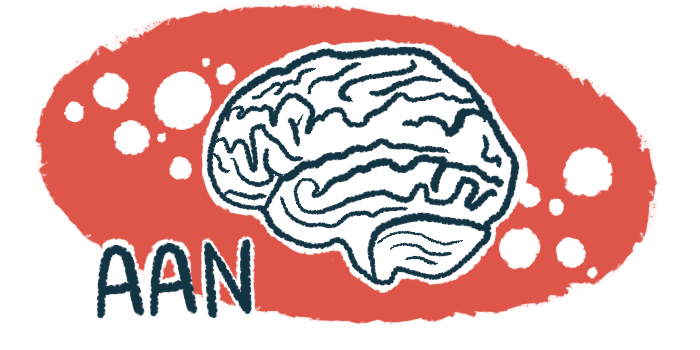AAN 2024: Stem cell therapy for ALS slows disease in some patients
But treatment with MSCs did not alter progression for all in Phase 2 trial

Stem cell therapy, specifically treatment with mesenchymal stem cells or MSCs, did not substantially alter disease progression among people with amyotrophic lateral sclerosis (ALS), according to new data from a Phase 2 clinical trial.
However, there was a subset of patients who did appear to experience notable benefits from the treatment, progressing at least 25% slower after stem cell therapy for ALS than before receiving the first MSC injection.
“We did not see any strong efficacy signal in the overall cohort, but there may be a responder effect when looking at a subset of participants,” Nathan P. Staff, MD, PhD, a professor of neurology at the Mayo Clinic, said in a talk titled “Results from a Phase 2 Clinical Trial of Repeated Intrathecal Autologous Adipose-derived MSCs in ALS.”
Staff’s presentation took place at the American Academy of Neurology (AAN) 2024 Annual Meeting, which is being held April 13-18, in Colorado and online.
More study is needed, according to the scientist, to help determine which patients will experience that responder effect.
Testing the impact of MSC stem cell therapy in ALS
MSCs are stem cells that reside in the bone marrow and fat tissue. These stem cells are able to grow into certain types of connective tissue cells, and they also secrete a wide range of signaling molecules that can modulate the activity of other nearby cells, including nerve cells.
“We’ve been studying MSCs … for ALS for over a decade now,” Staff said. “The reason they were selected for a possible therapy is their ability to secrete growth factors, including neourotrophic [nerve-growth-promoting] factors, and modulate the immune system and neuroinflammation.”
Staff noted that several pharmaceutical companies are already developing potential ALS therapies based on MSCs. The most well-known stem cell therapy for ALS, called NurOwn (debamestrocel), will enter a Phase 3b clinical trial later this year that could be the basis of a new application seeking the treatment’s approval in the U.S.
At the AAN meeting, Staff presented data from a multisite U.S. trial (NCT03268603) that used MSCs collected from participants’ fat tissue in the belly. The treated cells were then expanded to millions before being delivered back into the patients via injections into the spinal canal, known as intrathecal injections.
The study included 57 people with ALS whose symptoms had started no more than two years before enrollment. About two-thirds of the participants were male, almost all were white, and their average age was 56. Nine of these patients had familial ALS, in which the disease runs in families.
All of the participants were treated with intrathecal MSC injections every three months for a year, for up to four injections. These injections included somewhere between 10 and 100 million cells, based on certain dose modification criteria.
Staff noted that there was “quite a bit of dropout” during the year-long study, with nearly half of patients withdrawing before the study’s end. There were many reasons for quitting the study, though the most common was due to disease progression.
Nearly half of patients experienced side effects from treatment that were judged moderate or severe. Pain was an especially common side effect of this stem cell therapy for ALS, with about 23 patients experiencing moderate to severe back pain, limb pain, or headache.
For most, the side effects went away after a week or two, and Staff said that, overall, the MSC treatment was “reasonably well tolerated.” Still, there were some participants who experienced more long-lasting issues that led them to withdraw from the study.
Some patients saw slowing of ALSFRS-R scores of at least 25%
Disease progression was measured using the ALS Functional Rating Scale-Revised (ALSFRS-R), in which higher scores represent better functional abilities.
Prior to starting on MSC treatment, ALSFRS-R scores were rapidly decreasing over time, which is typical in ALS. During the year-long study, the rate of worsening was slightly slower compared with before treatment, but the difference failed to reach statistical significance.
However, 21 of the 57 study participants experienced a slowing of ALSFRS-R score of at least 25% after starting on the MSC treatment, Staff noted. This suggests there may be certain patients who respond to MSC therapy, while others derive no benefit from the treatment.
The team will now conduct further analyses from this study, including biomarker assessments, that may help shed further light on which patients do or do not respond to MSC therapy.








